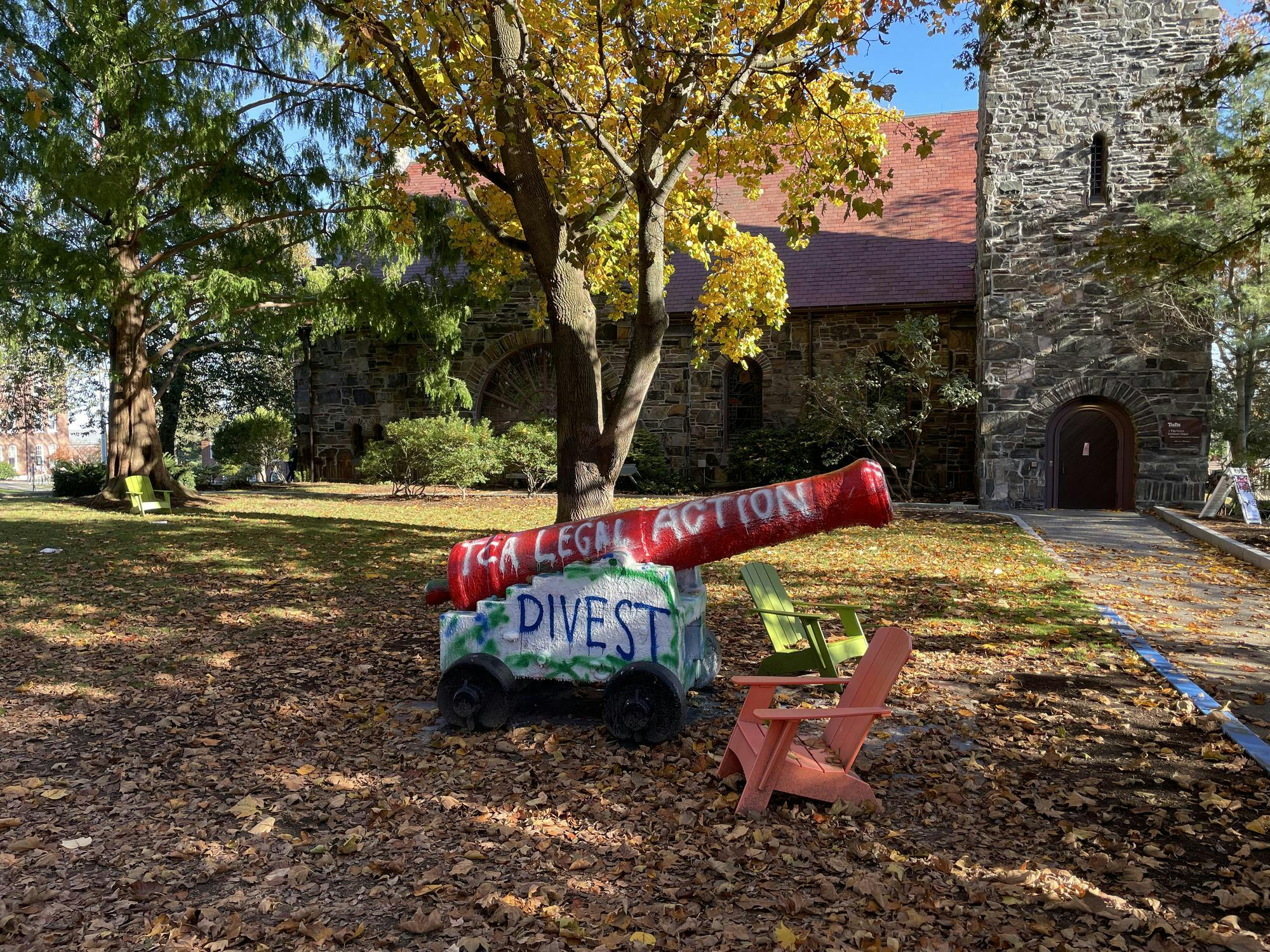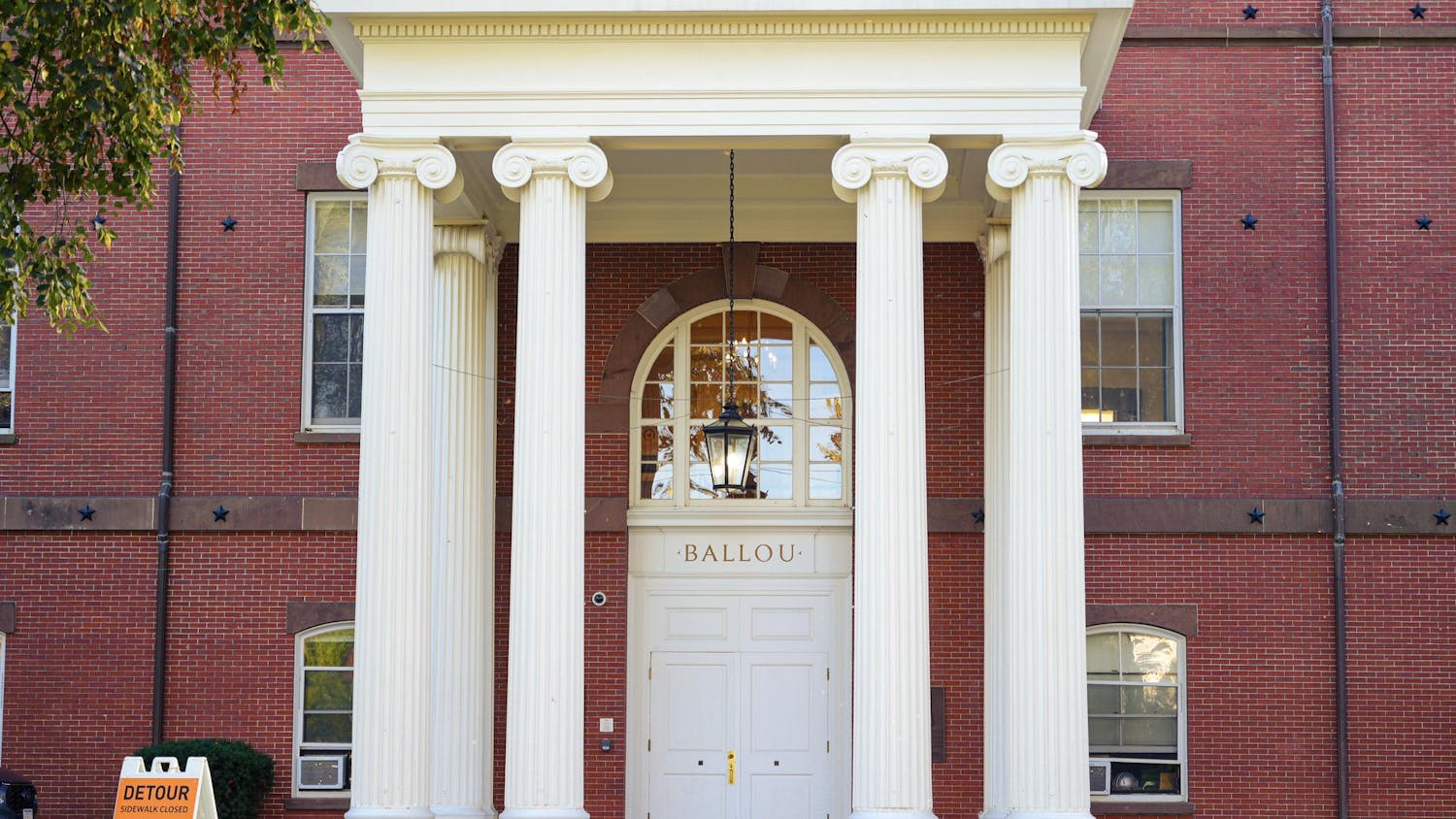Tufts Climate Action filed a legal complaint with the attorney general of Massachusetts’ office on Monday. They claim the university’s estimated $90 million in fossil fuel investments constitutes a violation of their duties to the public as a nonprofit institution.
The filing was made alongside five others at the University of Pennsylvania, the University of Chicago, Pomona College, Washington University in St. Louis and Pennsylvania State University. TCA’s filing was co-signed by several professors and local and international organizations.
In the 61-page document, TCA asks Massachussetts Attorney General Andrea Campbell to open an investigation into Tufts’ investment activity and accuses the trustees of violating their duty of loyalty, good faith and care for what they see as socially irresponsible investments.
“Continued investment in fossil fuels by the Trustees violates the fiduciary duties spelled out in the Massachusetts Uniform Prudent Management of Institutional Funds Act (UPMIFA) and in Massachusetts common law,” they wrote in the complaint.
Patrick Collins, executive director of media relations at Tufts, denied the claim that the university violated the law.
“The university is and always has been in compliance with the Massachusetts Uniform Prudent Management of Institutional Funds Act,” Collins wrote in an email to the Daily. “In recent years, the university has taken a number of steps to address climate concerns through its endowment, including prohibiting direct investments in coal and tar sands companies, investing in positive impact climate strategies, and calling on external investment managers to incorporate environmental risks into their investment decision-making.”
The UPMIFA was cited in similar filings at Harvard University in 2021 and the Massachusetts Institute of Technology in 2022. Harvard stopped investments in fossil fuels shortly after the complaint and noted financial and ethical reasons for their decision.
The Tufts divestment complaint was made with assistance by attorneys at the Climate Defense Project, an organization involved in legal climate activism across the country. Alex Marquardt, the executive director of CDP, told the Daily that these filings are a relatively new legal strategy that hinges on public support.
“A lot of it has to do with putting pressure on schools to live up to their commitments and to kind of put their money where their mouth is,” Marquardt said. “I think the law takes a really long time to change and usually follows changes in public opinion … it’s somewhat more likely that just the public pressure and increased visibility, and even a hint of legal impropriety, might cause some of these schools to shift their thinking.”
TCA also alleges conflicts of interest by trustees Peter Dolan and Daniel Zilberman for ties to oil and gas companies.
“These apparent conflicts of interest may violate the duty of loyalty insofar as they hinder impartial decision making with regard to fossil fuel securities, which, as detailed above, conflict with Tufts’s mission as a public charity,” TCA wrote.
Marquardt says if TCA wants to move forward with the complaint they can request a meeting with Campbell’s office, though requests are not always granted.
“[Attorneys general] are not required to respond to us in any way or let us know what they're thinking,” he said. “Sometimes some of these campaigns have released an additional round of signatories following the filing, or have done other things to keep the complaint in the media narrative.”
Shoshana Daly, a member of TCA leadership, told the Daily they will give the university time to respond to the complaint before requesting a meeting with the attorney general and hope divestment is possible before escalation.
“I think we’d like to see what the university responds with,” she said. “If we have to, we will make that meeting, but we definitely wanted to give it at least a little bit of time to give the school an opportunity to possibly change their mind or make a better decision on the topic.”
Although the university says they do not have any current direct holdings in coal and tar sands companies, TCA still finds their investments to be environmentally dangerous and a threat to the university’s future.
“In the coming decades, sea level rise, higher temperatures, extreme rainfall, invasive pests and many other environmental changes will pose serious threats to university land and buildings,” TCA wrote in the complaint. “Administrators will be forced to retrofit facilities and manage infrastructure disruptions, even as air quality on campus deteriorates.”
Correction: A previous version of the article misstated a trustee’s name. He is Daniel Zilberman, not David.






